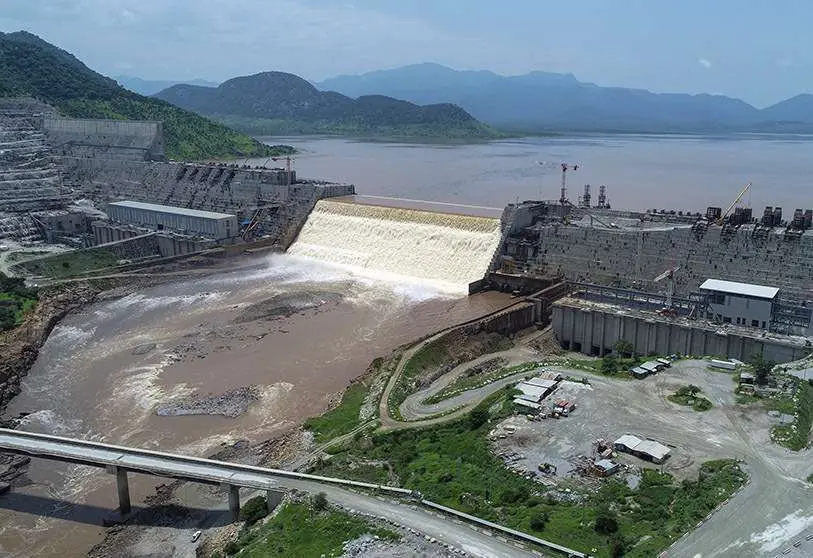Egypt calls for an agreement "as soon as possible" on the Ethiopian dam

The Egyptian government has called for a trilateral agreement on the dam being built by the Ethiopian authorities on the Blue Nile, the main tributary of the Nile River which originates in Ethiopia and flows through Sudan. The request has been made after the second phase of filling the infrastructure has begun. Egypt, Sudan and Ethiopia have resumed negotiations after a month of stalemate.
The Great Ethiopian Renaissance Dam, known as GERD, has been the subject of dispute between Egypt, Sudan and Ethiopia. The three took part last Sunday in a virtual summit moderated by South Africa, which currently holds the presidency of the African Union (AU), and attended by international observers and experts. The talks are expected to continue this week.
The presence of the AU experts was expressly requested by Sudan in view of the lack of progress in the previous rounds. However, while Khartoum described their action as "insufficient" because of their lack of clarity in taking action, the Ethiopian delegation moved to approve a draft submitted by the AU Commission's experts and has opted to use it as the basis for negotiations, according to Ethiopian sources.
Egypt, which has described the dispute as an "existential threat", has defended, through the Foreign Ministry, the need for the parties to reach an agreement "that satisfies the mutual interests of the three countries and, at the same time, guarantees the rights to water and the interests of Egypt".
The GERD, built in the Benishangul-Gumaz region 15 kilometres from the Ethiopian border with Sudan, has been a source of controversy between the three countries since construction began. The ambitious project, launched in 2011 by Ethiopia, promised revenues of US$4.6 billion and to be a development engine for rescuing millions of people from poverty.
Ethiopia has warned that it will not accept any agreement that limits its right to use the waters of the Nile, indicating its commitment to conclude negotiations and reach a deal. Furthermore, the construction of the infrastructure is 78 per cent complete, according to the Ethiopian Ministry of Irrigation.
Ethiopia hopes to become the largest generator and exporter of electricity on the continent. For the country led by Abiy Ahmed, this project is a lifeline for its economy and, according to experts, a respite in the midst of the political tension following the postponement of the general elections from August 2020 to May 2021 and in the midst of the conflict in the Tigray region.
Egypt, for its part, is considerably dependent on fresh water from the Nile. Since the beginning of the negotiations it has expressed its fears that the GERD will negatively affect its water supply and has insisted that measures be taken to protect downstream countries in case of drought during the process of filling the dam.
The agreement has been stalled for more than a decade. The three countries have held several rounds of talks since Ethiopia launched the GERD project in May 2011, but have yet to agree on the filling and operation of the huge dam reservoir.
The governments of Egypt, Ethiopia and Sudan reached a principle agreement on the main points of contention on 31 January 2020 and committed to signing the final document by the end of February. Although in the end Addis Ababa abandoned the talks before signing an agreement that was only initialled by Egypt.
On 26 June the three states agreed to avoid any "unilateral" action on the dam - including filling its reservoir - until there was a binding agreement. However, Ethiopia began the first phase of filling in July.
The trilateral contacts were resumed on 27 October under the mediation of the AU after seven weeks in the dry dock, and in view of an upsurge in tension after US President Donald Trump said Egypt could "blow" the dam. Last November Khartoum boycotted the negotiations, urging the AU to play a more important role. The African Union's mediation began in July, after negotiations between the three countries stalled for the second time following a series of contacts mediated by the United States and the World Bank in February 2019. After numerous failures, Egypt hopes to sign the agreement "as soon as possible".








